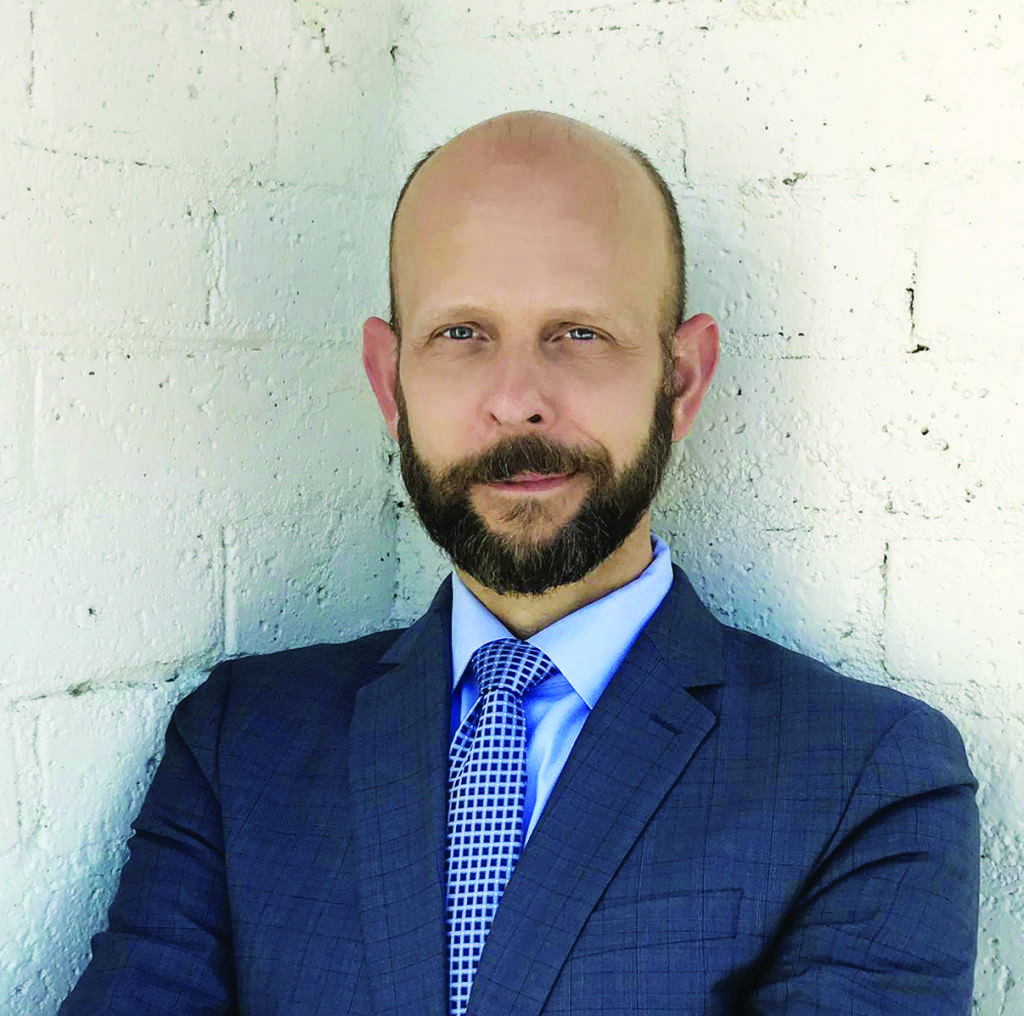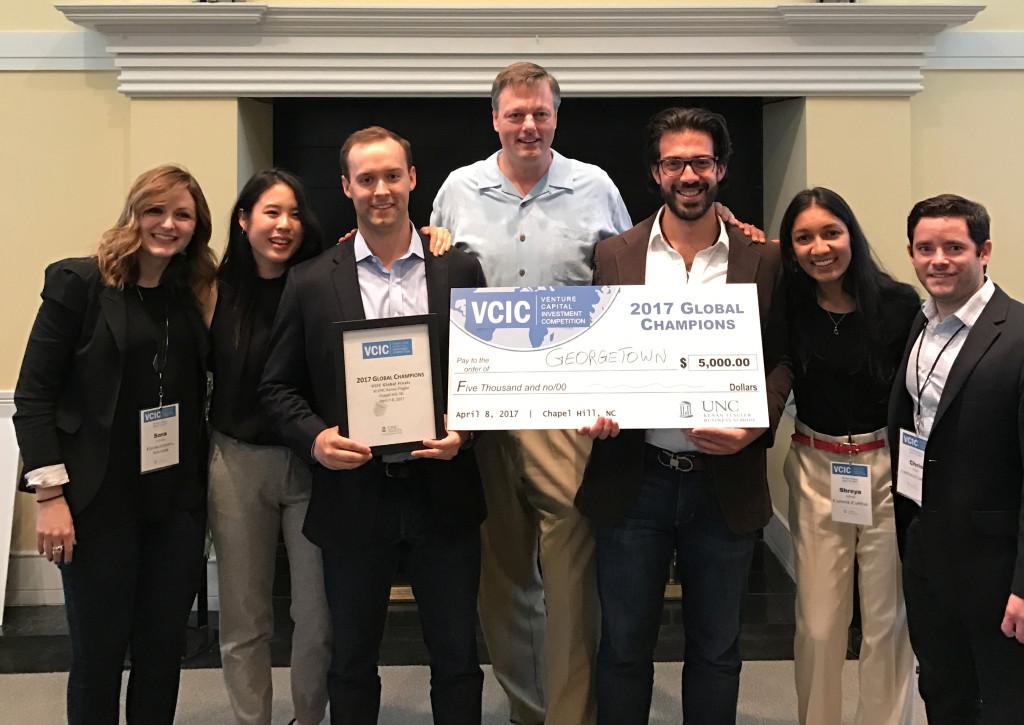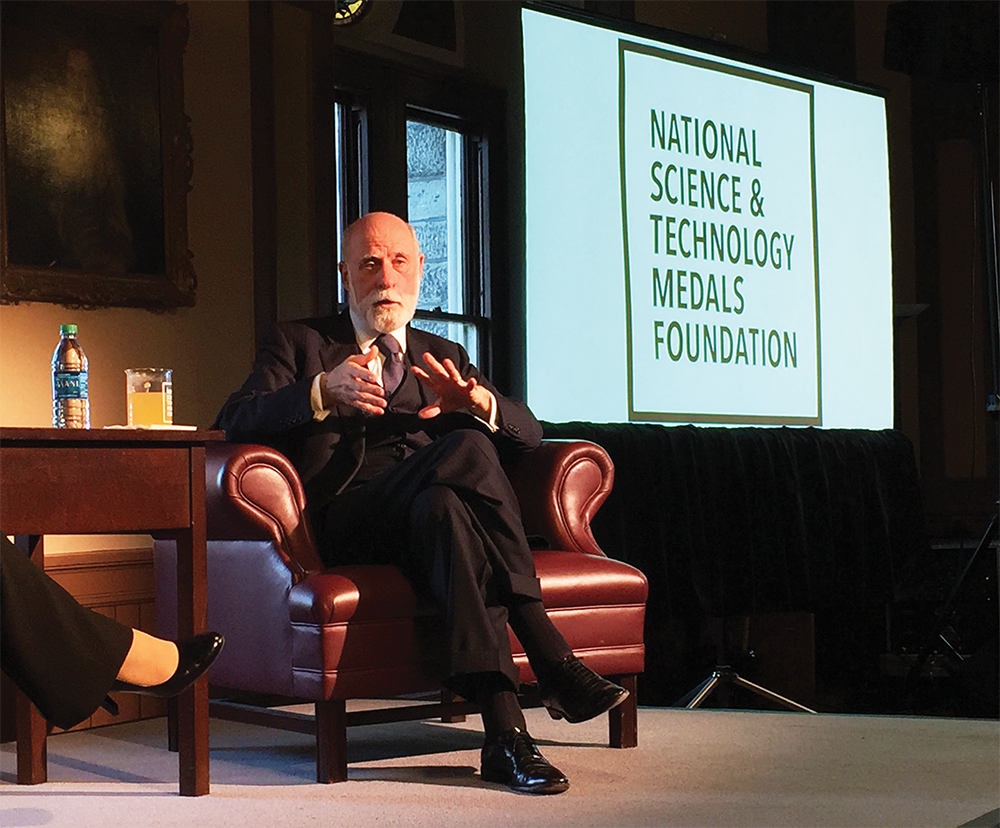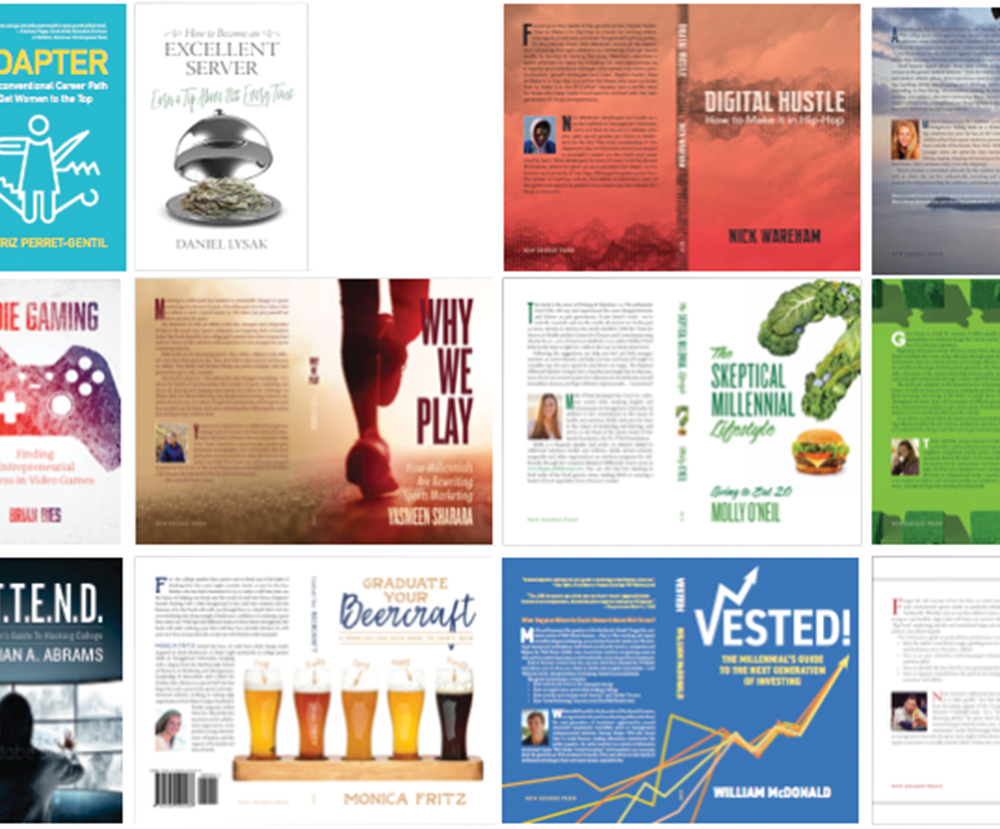
Gruppo Illy S.p.A. President Ricardo Illy, left, and McDonough School of Business professor Michael R. Czinkota examined the fate of Italian manufacturing in a increasingly globalized world.
Italian businesses and manufacturers have a bright future ahead of them, according to Gruppo Illy S.p.A. President Riccardo Illy, who shared his experiences and perspectives with a group of about 30 students at the Baker Scholars Conference Room on March 24.
The Georgetown University Italian Research Institute hosted the discussion titled “The Future of Italian Manufacturing” that was moderated by McDonough School of Business Professor Michael R. Czinkota, Director of the Italian Research Institute Serafina Hager, Dean of Georgetown and College Chester Gillis were also present for the event.
After joining the family business in 1977, Illy redesigned the company’s commercial structure and marketing strategies. Today, Gruppo Illy S.p.A. is a holding company that owns five companies, including coffee chain illycaffè and chocolate producer Domori. Illy also served as mayor of Trieste from 1993 to 2001 and as president of the Friuli-Venezia Giulia region from 2003 to 2008. Illy oversaw the expansion of his company firsthand for 40 years.
Commenting on Italian manufacturing, Illy said Italians have a competitive advantage over other countries because of their inventiveness and ingenuity, as well as their high regard for aestheticism.
“The Italian population has two main competitive advantages. One is genius, and the capability to create, to invent, to put together existing technologies in new and in original ways,” Illy said. “The other comparative advantage is related to aesthetic. Italians are able to understand and to appreciate what is a higher aesthetic content, but what is more important is that they are able to produce it.”
According to Illy, this creativity and appreciation for aesthetic pleasure translates not only to quality in finer products but also to quality in heavy industry.
“Italians are champions of fashion, furniture, food and wine, but they are also champions in producing machines,” Illy said.
Illy said Italy’s strong machinery industry will become more profitable as a result of increased industrialization and automation in developing countries, particularly China.
“In China, they are going more and more to automatize the production. What does it mean globally for the Italian manufacturing sector? They are going to buy machines, and Italy is great in producing machines,” Illy said.
Illy noted that rising average incomes in developing nations will also help Italian manufacturing, as people in foreign countries will be able to purchase a larger share of Italy’s exported goods, which are usually expensive.
“While their average income is increasing, they can pass from mass-market products to quality products,” Illy said. “And so they can buy closets, they can buy furniture, they can buy food and wines of higher quality, and again, Italy is a master in all of these productions.”
Illy acknowledged that jobs have flowed out of Italy in the past in search for cheaper labor. He also noted that, as wages in developing countries catch up to domestic wages, Italian manufacturers are reconsidering keeping production within the country.
“In Italy we have many companies who were going to Romania to manufacture and now are coming back to Italy, because, in about 15 years, the cost of labor in Romania almost reached the cost of labor in Italy,” Illy said.
Illy concluded, then, that the future of Italian manufacturing is promising, as demand for Italian products will increase, and Italians will thus be able to reap the benefits due to higher job inflow.
The conversation then turned to his family’s business, which began operating in 1933, when his paternal grandfather, Francesco Illy, who served for Austria-Hungary in World War I, opened the first illycaffè in Trieste. Illy said that family-operated businesses provide exclusive opportunities for high-risk investments.
Illy illustrated this by recounting the leap of faith the company took in investing in a vineyard, which took 10 years to be profitable. Illy argued that a publicly owned company would not have had the patience necessary to support such a venture.
“For a family-owned company, it’s normal to make an investment to get the first sales in 10 years. For a company with spread ownership, with a public company, you are looking at a quarter – what about 10 years?” Illy said.
When asked about Starbucks’ expansion into Milan, Illy said he not only was not worried but that he believed it would bring about healthy competition.
“Starbucks is a global company, so they had to come to Italy sooner or later,” Illy said. “In any case, I consider any kind of competition as a good one, because it will solicit the existing company to improve.”












